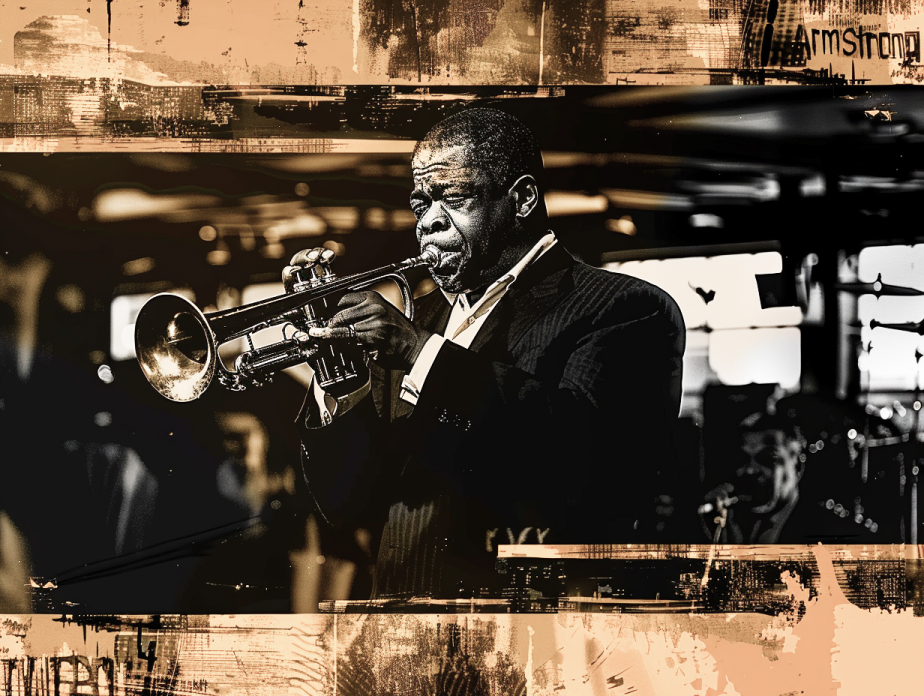Julio Iglesias was born on September 23, 1943 in Madrid. He specialized in international law.…

When I talk about Louis Armstrong, I feel that I am a biased to him and to his music. In fact, I owe his sweet melodies as they taught me what it means to taste the tune, and enjoy the ecstasy of its flow in your ear. I believe that I speak as a lover here, more than a man with a point of view. There are many schools of music which make the listener inclined to whispers that ignite his feelings, and reach the highest levels of enthusiasm and emotion. Many of those who listened to his music and filled their souls with enthusiasm might agree with me in this. I tend to believe that what this artist left in me, made me more sensitive to receiving his tones emerging from the womb of suffering to generate hope from the height of pain.
Armstrong’s life was filled from the beginning with racism, self-killing and marginalization, which is a painful beginning enough to make a hater, who desires revenge against his oppressors at best, but the surprise is that it made him a person more gentle, delicate and transcendent in feelings. Especially when he reflects his lively self on his instrument to broadcast all those sweet and amazing melodies. Talking about him as one of the “jazz” players will not add anything new, but it is a miracle being able to bring out all this sweet and beautiful hidden feelings in the midst of all the difficult circumstances surrounding him. We may find in his words before his death that sweetness, tenderness and serenity that a human being rarely has. He says, “I think I had a beautiful life. I didn’t wish for anything I couldn’t get, and I got pretty near everything I wanted because I worked for it”.
Armstrong is considered the king of jazz music, the most famous trumpet player in history, and although he was never a political advocate, his music gradually changed the view of racism towards the black people in the United States, enriching with his music the struggle of people of color in America for principle, and for obtaining freedom and basic rights as citizens. It was no longer possible after him to maintain that racist view because of skin color. Armstrong was born in Orleans, America, in 1901 for a poor family, and grew up in the arms of his mother, grandmother and relatives. He had to work when he was in elementary school, and was able to buy his first musical instrument in his life. His personality was affected by his father’s abandonment when he was a child. In a society full of racism, he tasted its severity; When he was in an orphanage for black children, he knew persecution from an early age for one thing, the color of his skin.
He started playing the trumpet, trying to create his own tunes in a framework of creative innovation. In 1917, he played for the first time alongside his teacher (Oliver) in his orchestra. He composed and performed hundreds of musicals, songs and dramas in theatre, cinema and television. He was able to remove the famous “Beetles” from the throne of “pop music”, becoming the most famous international singer on the throne of sales. His poverty at the beginning of his life did not prevent him from adopting a handicapped child, and he continued to care for him until the end of his life. He was an ardent advocate of the civil rights movement, providing great financial aid to its leader, “Martin Luther”.
He was born poor, and fame did not change his tolerant nature throughout his life, even when he was at the peak of his fame, he would go out to the slums and play his instrument for the young children. He died as he was born, carrying with him nothing but the love of those he worked with and for them. He left them his musical legacy that brings back the story of that human “Louis Armstrong”.
Rami Maki



